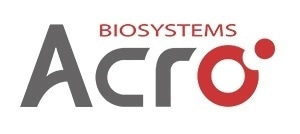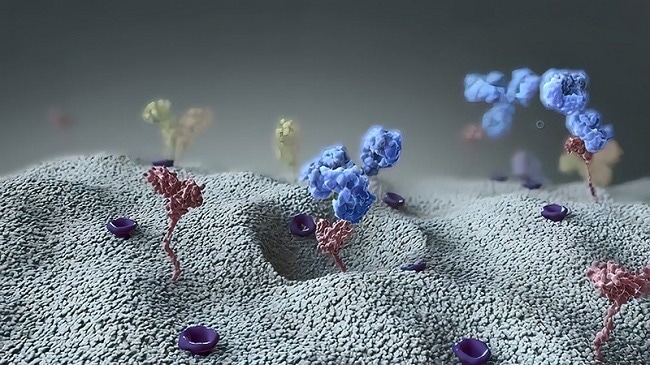A crucial step in preclinical drug development is the confirmation of the specific binding of the new therapeutic molecule to the target protein. Transmembrane proteins (TPs) such as ion channels, transporters or receptors provide many targets for cancer and other diseases. They are complex, making the production of those proteins in adequate amounts much more challenging than their soluble counterparts. This results in a bottleneck in the drug discovery workflow.
New approaches to aid drug development include full-length transmembrane protein platforms, which provide high-quality purified TPs as ready-to-use articles for drug-target interaction assays.
Image credit: ACROBiosystems
Meet the claudin family: Gatekeepers in cancer
The claudin family of proteins provides examples of TP drug targets. This group of TPs has an essential role in tight junctions, the gatekeeping structures responsible for regulating the flow of ions and water between endothelial and epithelial cells.
In addition to other functions, tight junctions support the integrity of tissue structure, which prevents cancer cells from migrating through the endothelial barrier and entering the bloodstream. Recently, studies have shown that abnormal expression levels of members of the Claudin protein family are associated with tumor growth and metastasis, making them important therapeutic targets and factors in cancer prognosis.
Claudins contain four membrane-spanning domains with peptide loops on the outside of the membrane. Combined, these loops form three-dimensional structures, or epitopes, targeted by diagnostic or therapeutic antibodies.
“Producing only isolated soluble loops of claudin proteins would be quick and easy. However, we know that because the individual peptides do not interact correctly, the three-dimensional structure necessary for reliable antibody screening does not form. But when we express claudins as full-length TPs, the transmembrane domains hold the outer loops in the correct position. says Dr. Spencer Chiang, ACROBiosystems Communications Manager.
Interaction studies using therapeutic molecules and antibodies can only present meaningful results when the target is provided in its biologically relevant conformation. This requires methods that allow the production of correctly folded, active, full-length TPs. The establishment of these methods remains challenging as it varies between individual protein targets.
About ACROBiosystems
ACROBiosystems is a cornerstone enterprise of the pharmaceutical and biotechnology industry. Their mission is to help overcome challenges with innovative tools and solutions from discovery to the clinic. They provide life science tools designed for use in discovery research and scalable to the clinical stage and beyond. Constantly adapting to new regulatory challenges and guidelines, ACROBiosystems offers solutions, whether through recombinant proteins, antibodies, assay kits, GMP grade reagents or custom services. ACROBiosystems empowers scientists and engineers committed to innovation to simplify and accelerate the development of new, better and more affordable medicine.
Sponsored Content Policy: News-Medical.net publishes articles and related content that may be derived from sources with which we have existing commercial relationships, provided that such content adds value to News-Medical.Net’s core editorial ethos of educating and informing visitors of the site interested in the medical field. research, science, medical devices and treatments.
